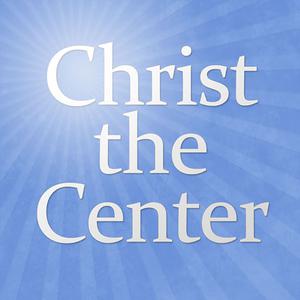
Christ the Center
Reformed Forum
Doctrine for Life
- Biblical-Theological Aspects of the Nativity

In this episode of Christ the Center, Daniel Ragusa leads us in a consideration of nativity through the lens of Geerhardus Vos’s Biblical Theology. As this season prompts reflection on the incarnation of Christ, this conversation explores the eight aspects of the nativity highlighted by Vos, including its linguistic and redemptive-historical continuity, non-political and gracious character, eschatological significance, and missional scope. Along the way, we examine how Vos’s insights foster a deeper sense of wonder and worship, connecting the nativity to God’s covenantal promises and his grand redemptive plan.
Whether you’re a student of biblical theology or seeking to enrich your understanding of the birth of Christ, this episode offers profound insights and a timely celebration of the wonder of Christ’s coming. Listen in for a thought-provoking conversation that ties the nativity to the broader redemptive narrative and stirs your heart to worship this season.
Chapters
- 00:00:00 Sponsor: Five More Talents
- 00:01:04 Introduction
- 00:13:17 Vos on the Nativity
- 00:15:59 Horizontal and Vertical Dimensions
- 00:26:21 The Structure of Revelation regarding the Nativity
- 00:31:55 Aspects of the Nativity
- 00:33:36 Organic-Linguistic Continuity
- 00:35:26 Historical Continuity
- 00:37:49 The Redemptive Aspect
- 00:42:16 The Non-Political Aspect
- 00:46:56 The Aspect of Grace and Obedience
- 00:56:30 The Eschatological Aspect
- 01:02:07 The Universal/Missional Aspect
- 01:06:44 The Supernatural Aspect
- 01:11:53 Bonus: A Covenantal Aspect
- 01:14:24 Practical Application
- 01:22:43 Conclusion
Participants: Camden Bucey, Dan Ragusa
20 December 2024, 6:00 am - Engaging Missions through the Life of John G. Paton
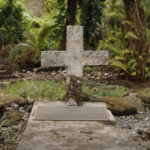
In this episode, Chad Vegas, founding pastor of Sovereign Grace Church and founding board chairman of Radius International, joins us to discuss the extraordinary life and ministry of John G. Paton, a nineteenth-century missionary to the New Hebrides. Drawing from his experience contributing to a docuseries on global missions, Chad reflects on Paton’s unwavering faith, theological convictions, and perseverance in the face of immense challenges, including tribal conflicts and personal loss.
Together, we explore the spiritual and cultural context of the New Hebrides (present day Vanuatu), the lessons Paton’s life offers for modern missionaries, and the role of local churches in supporting mission work today. We also discuss the importance of heavenly-mindedness, the grace of God made perfect in weakness, and practical ways listeners can get involved in the Great Commission.
Whether you’re passionate about missions or looking for inspiration to deepen your faith, this episode offers rich insights into the transformative power of the gospel and its call to every believer.
Links
- Christ the Center episode 850 — Training and Equipping Missionaries with Chad Vegas and Jonathan Master
- John G. Paton: Missionary to the New Hebrides, An Autobiography
- The Making of Missionary: John Paton (Vanuatu)
- Camden Bucey, To the Ends of the Earth: The Great Commission and God’s Unfolding Plan for the Nations
- Dan Ragusa, Fullness of Joy: A Biblical Theology of God with Us
- Mark R. Brown, ed., Order in the Offices: Essays Defining the Roles of Church Officers (2nd ed.)
- 2024 Christmas Extravanganza
Chapters
- 00:00:00 Sponsor: Five More Talents
- 00:01:35 Introduction
- 00:03:58 New Books from Reformed Forum
- 00:07:47 Christmas Extravaganza (12/20/2024)
- 00:10:40 Radius International, Missionary, and Resources on Missions
- 00:18:42 Missions and Theology
- 00:20:32 Escaping a Small-Minded Mindset Regarding Missions
- 00:25:55 Missions and the Family
- 00:33:36 John G. Paton’s Story
- 00:39:38 The Testimony of an “Elephant” Church
- 00:41:22 The Islands and the People Paton Served
- 00:46:19 Heavenly-Mindedness and God’s Grace Made Perfect in Weakness
- 00:52:39 Obstacles to Going into the Field
- 00:57:41 Supporting Missions
- 01:05:38 Next Steps for Getting Involved
- 01:11:15 The Work of the Great Commission Is Everywhere
- 01:18:53 Conclusion
Participants: Camden Bucey, Chad Vegas, Ryan Noha
13 December 2024, 6:00 am - The Carson Center and the Future of Biblical-Theological Studies

In this episode, Camden Bucey connects with Dr. Ben Gladd, the inaugural executive director of The Carson Center for Theological Renewal at The Gospel Coalition. Dr. Gladd shares the vision behind the Carson Center, its commitment to biblical theology, and its efforts to provide accessible resources to the global church.
The conversation touches on the center’s flagship projects, including a comprehensive, multimedia-enhanced Bible commentary and its ambitious translation goals. Dr. Gladd also discusses the current state of biblical theology and New Testament studies, highlighting the opportunities and challenges facing the church today.
Listeners will also enjoy insights into Dr. Gladd’s writing methods, his editorial role in the New Studies in Biblical Theology series, and the vital work of connecting the Bible’s story to believers around the world. Whether you’re a scholar, pastor, or simply curious about biblical theology, this episode provides insight and encouragement.
Links
- Learn more about The Carson Center for Theological Renewal at The Gospel Coalition.
- Explore Reformed Forum’s new publications: Order in the Offices, 2nd Edition and Fullness of Joy by Dan Ragusa.
Chapters
- 00:07 Introduction
- 03:52 Woodworking Talk
- 10:37 New Books from Reformed Forum
- 13:48 Reformed Forum’s Christmas Extravaganza
- 16:03 Introducing the Carson Center
- 24:47 Key Programs
- 32:31 Theological Journals
- 42:07 The Current State of Biblical-Theological Understanding
- 55:31 How to Follow Up
- 57:44 Conclusion
Participants: Benjamin Gladd, Camden Bucey
6 December 2024, 6:00 am - Listener Questions
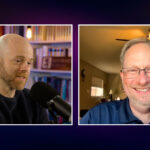
Join Camden Bucey and Jim Cassidy in this special live-streamed episode of Christ the Center. From discussing the “first annual” Reformed Forum Christmas Extravaganza to regional meetups and exciting book releases, this episode highlights several ways we are seeking to connect with our community. As Jim and Camden take questions from listeners in the live chat, the conversation also explores theological questions, including Karl Barth’s doctrines, the nature of ministerial church membership, and practical advice for theological students. Don’t miss this rich blend of theological discussion, community updates, and some unnecessary sports talk.
Chapters
- 00:00:07 Introduction
- 00:01:26 News, Updates, and Events
- 00:04:19 New Book: Order in the Offices (2nd ed.)
- 00:18:07 Which Denomination Is the “Best”?
- 00:29:56 Karl Barth’s Christology
- 00:35:25 Should I Study Karl Barth?
- 00:41:09 Advice for Research Students
- 00:52:33 Ministers as Members of Presbyteries vs. Local Churches
- 01:04:19 Three Favorite Systematic Theologies
- 01:05:45 Is Gordon Clark Worth Reading?
- 01:09:28 Conclusion
Participants: Camden Bucey, Jim Cassidy
29 November 2024, 6:00 am - The Early Machen
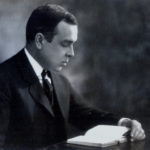
Danny Olinger, John Muether, Darryl Hart, and Camden Bucey explore the life and legacy of J. Gresham Machen, discussing Richard E. Burnett’s provocative book, Machen’s Hope: The Transformation of a Modernist in the New Princeton. Burnett seeks to reframe Machen as both modern and orthodox, portraying him as a “conservative modernist” who employed modern intellectual methods while remaining firmly committed to Reformed theology. This episode critically examines Burnett’s thesis and evaluates its contribution to understanding Machen’s theological and historical significance.
While Burnett rightly highlights Machen’s struggles in Germany and at Princeton, the panel critiques his more contemporary definition of the terms “modern” and “modernist,” noting they often diverge from Machen’s own vocabulary and theological focus. They emphasize that even the younger Machen remained theologically orthodox and discerning of heterodoxy, as seen in his critiques of figures such as his professor Wilhelm Herrmann.
Furthermore, the panel questions Burnett’s emphasis on Machen’s early crises over his later, defining contributions—such as founding Westminster Seminary and the Orthodox Presbyterian Church—arguing that this framing risks downplaying Machen’s lifelong theological battle against liberalism, which he saw as denying God’s direct intervention in history and thus undermining the gospel.
This episode sheds light on Machen’s enduring legacy and his vital contributions to Reformed orthodoxy. Overall, the panelists contend that Machen’s hope was centered on God’s supernatural action in history, a hope Machen famously summarized in his final words: “So thankful for active obedience of Christ. No hope without it.”
Links
- D. G. Hart, Defending the Faith: J. Gresham Machen and the Crisis of Conservative Protestantism in Modern America
- Ned B. Stonehouse, J. Gresham Machen: A Biographical Memoir
- The Presbyterian Conflict
- D. G. Hart and John Muether, Fighting the Good Fight: A Brief History of the Orthodox Presbyterian Church
- Richard E. Burnett, Machen’s Hope: The Transformation of a Modernist in the New Princeton
- Camden M. Bucey, “Thoughts on Machen’s Hope by Richard E. Burnett“
Chapters
- 00:00:07 Introduction
- 00:05:00 Machen’s Significance
- 00:25:13 Machen’s Family Background
- 00:41:44 Machen at Marburg
- 00:48:31 Machen, Vos, and History
- 00:54:54 Machen’s Mentors
- 01:05:28 Assessing Machen
- 01:20:53 Conclusion
Participants: Camden Bucey, Danny Olinger, Darryl G. Hart, John Muether
22 November 2024, 6:00 am - Fullness of Joy: A Biblical Theology of God with Us
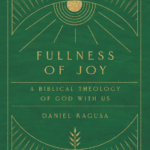
Join Camden Bucey and Ryan Noha as they welcome Dr. Daniel Ragusa, pastor of Messiah’s Reformed Fellowship in New York, to discuss his new book, Fullness of Joy: A Biblical Theology of God With Us (single copies, ten-pack), published by Reformed Forum. In this engaging conversation, Dr. Ragusa dives into the biblical theme of Emmanuel, tracing the promise of “God with us” from Genesis to Revelation, showing how this theme unfolds through the covenantal storyline of Scripture and culminates in Jesus Christ. The book’s ten chapters correspond to a video course now freely available through our Reformed Academy, making it ideal for church groups, Bible studies, or personal study.
Explore how Dr. Ragusa uses biblical theology to reveal the coherence of Scripture and God’s redemptive plan for His people. From the Garden of Eden, through the patriarchs, tabernacle, and temple, to the final new creation, this episode unpacks how each stage of redemptive history points to Christ, inviting us to find true joy in fellowship with God. Perfect for believers wanting to deepen their understanding of Scripture’s unity and its application to the Christian life, this conversation offers accessible yet profound insights that are as useful for laypeople as they are for church leaders.
Tune in to discover the richness of God’s redemptive historical work and be encouraged to behold Christ on every page of the Bible.
Watch on YouTube.
Chapters
- 0:07 Introduction
- 14:16 Tracing the Theme of God with Us throughout the Scriptures
- 20:33 True God and True and Righteous Man
- 27:47 Eschatology and Fellowship with God
- 36:18 Deep Biblical Truths for Everyone
- 39:43 Christ Progressively Revealed in All of Scripture
- 46:38 The Tabernacle and Temple
- 54:58 Christ’s Resurrection and the Sending of the Spirit
- 1:02:06 The New Heavens and New Earth
- 1:10:31 Supporting Course Materials
- 1:13:11 Conclusion
Participants: Camden Bucey, Dan Ragusa, Ryan Noha
15 November 2024, 6:00 am - Vos Group #92 — Parables and Allegories
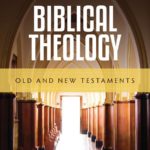
In this episode of Christ the Center, we continue our Vos Group series with an in-depth discussion on Geerhardus Vos’s Biblical Theology, focusing on Jesus’ use of parables and allegories on pages 352–355. Camden Bucey and Lane Tipton explore the unique role of parables in Jesus’ teaching, emphasizing the contrast between parables and allegories and unpacking their function, purpose, and the theological depth within each form.
They also discuss the eschatological significance of the natural-spiritual parallel Vos identifies, highlighting how Jesus’ parables point to a heavenly reality beyond earthly expectations. The conversation also touches on the implications for Christian eschatology and the proper focus of hope within reformed thought.
Join us as we explore the richness of Vos’s thought and its relevance for understanding Jesus’ mission and message. Listen now to deepen your grasp of the parabolic teaching method and its place in Reformed theology, and catch up on past Vos Group episodes.
Chapters
- 00:07 Introduction
- 03:27 Parables and Allegories
- 17:31 The Purpose of Parables
- 30:07 The Natural-Spiritual Parallel
- 38:44 John’s Theological Distinction
- 51:24 Conclusion
Participants: Camden Bucey, Lane G. Tipton
8 November 2024, 6:00 am - Missions, Culture, and Online Education

In this episode of Christ the Center, Camden Bucey welcomes Dr. Craig Ott, professor of Mission and Intercultural Studies at Trinity Evangelical Divinity School, for an in-depth discussion on the intersection of global missions, cultural engagement, and theological education. Dr. Ott shares his experiences in church planting across Germany, his insights on missions in Eastern Europe, and the complexities of online theological education. Reflecting on his recent article, “Culture and Online Theological Education: The Democratization of Education or a New Imperialism?“, Dr. Ott explores the opportunities and challenges presented by digital learning platforms, especially in a global context.
The conversation covers topics such as the cultural implications of digital education, the need for contextualized theological training, and the importance of empowering local churches to adapt sound doctrine within their unique cultural settings. Dr. Ott also discusses broader trends in global missions and the impact of diaspora communities.
Listeners interested in missions, intercultural studies, and online theological education will find this episode both insightful and thought-provoking, offering practical wisdom on how the Reformed tradition can effectively engage with the global church.
Links
- Craig Ott, Teaching and Learning across Cultures (Baker Academic)
Chapters
- 00:00:07 Introduction
- 00:04:01 Dr. Craig Ott’s Background and Experience in Missions
- 00:14:43 The Influence of Digital Cultures
- 00:26:52 Media Ecology, and the Benefits and Detriments of Online Education
- 00:45:04 Cohort Models
- 00:52:45 Diversity in the Body of Christ
- 01:01:33 Current Challenges and Encouraging Aspects of Contemporary Missions
- 01:10:17 Conclusion
Participants: Camden Bucey, Craig Ott
1 November 2024, 5:00 am - Van Til Group #14 — Ethics and the Christian Philosophy of Reality

In pp. 77–79 of The Defense of the Faith (first edition), Cornelius Van Til addresses the fundamental differences between Christian and non-Christian perspectives on ethics, particularly focusing on the role of the will of God as foundational to ethical systems. Van Til begins by asserting that God’s will is absolute and self-determinative. God is eternally good, not becoming good through a process, but being so by his very nature. Unlike humans, God does not have to achieve goodness; it is intrinsic to his eternal character. Therefore, God is both absolutely necessary and absolutely free.
Van Til introduces a key distinction between Christian and non-Christian viewpoints. Christians uphold the concept of an absolutely self-determinative God, who is the necessary presupposition for all human activity. Non-Christian ethics, however, assume that if the Christian God were real, he would stifle ethical activity. This is because non-theistic views perceive God and man as having wills conditioned by an environment, implying that God must also achieve goodness through a process.
Van Til critiques Platonic philosophy, noting that Plato’s conception of “the Good” was ultimate, but his god was not. For Plato, “the Good” was abstract and separated from a fully personal God, leaving the ultimate reality as dependent on the element of Chance. Thus, even if Plato spoke of the Good, it was not self-determined or sovereign in the Christian sense. Modern idealist philosophers tried to build on Platonic thought by proposing an “absolutely self-determinative Experience,” but ultimately failed, according to Van Til, because they made God dependent on the space-time universe, blending time and eternity. As a result, God became dependent on external processes rather than being sovereign over them.
The core ethical difference between Christianity and non-Christian systems is the acceptance or rejection of an ultimately self-determinative God. Van Til argues that without the presupposition of God as absolute, there can be no coherent or purposeful human experience, including ethics. The absolute sovereignty of God is not a hindrance to human responsibility but rather its foundation.
Van Til makes a point to distinguish Christian doctrine from philosophical determinism. While both affirm necessity, philosophical determinism is impersonal, suggesting that everything is determined by blind, impersonal forces. Christianity, in contrast, asserts that the ultimate reality is personal; God’s sovereign will underlies the possibility of genuine human freedom and responsibility.
Chapters
- 00:00:07 Introduction
- 00:05:31 Ethics and the Christian Philosophy of Reality
- 00:11:45 The Christian Conception of God
- 00:18:02 The Absolute Contrast between Christian and Non-Christian Ethics
- 00:29:48 Contrasts with Platonism
- 00:47:18 Contrast with Idealism
- 00:52:10 The Central Ethical Distinction
- 00:55:22 Contrast with Philosophical Determinism
- 01:05:11 Conclusion
Participants: Camden Bucey, Carlton Wynne, Lane G. Tipton
25 October 2024, 5:00 am - Christian Education and the US Supreme Court

In this episode, we are joined by Jeffrey C. Tuomala, Professor of Law at Liberty University, to examine two landmark U.S. Supreme Court decisions in light of two articles by Ned Stonehouse. Professor Tuomala, with his deep commitment to restoring the moral foundations of law, will offer his legal expertise to comment on Stonehouse’s reflections regarding McCollum v. Board of Education and Everson v. Board of Education. These cases addressed the relationship between church and state, religious education, and the issue of secularism in public schools.
We explore the deeper issues Stonehouse raised, such as the dangers of secularism in public education, the role of Christian education, and the balance between religious liberty and state control. Professor Tuomala provides a thoughtful legal and moral analysis of how these cases continue to influence contemporary debates about faith, law, and education in America. This conversation is a rich discussion on the intersection of theology, law, and Christian education in the modern world. Listen for a compelling exploration of these pivotal court decisions and their ongoing impact on religious freedom and Christian education.
Chapters
- 00:00:07 Introduction
- 00:08:49 Ned Stonehouse’s Comments on Two SCOTUS Decisions
- 00:14:00 The Context of SCOTUS during the 1940s
- 00:17:09 Everson v. Board of Education
- 00:19:13 Thinking Critically and Defining Terms
- 00:25:23 Religion, Secularism, and Neutrality
- 00:38:53 Rethinking the State’s Relation to Education
- 00:51:04 Vouchers for Private Education
- 00:58:28 Improving Stonehouse’s Case
- 01:02:59 Resources for Going Deeper
- 01:06:03 Conclusion
Articles
- Ned B. Stonehouse, “A Differing Opinion on the School Bus Issue,” The Presbyterian Guardian 16, no. 6 (March 25, 1947): 83–84.
- Ned B. Stonehouse, “Whither Religious Education?,” The Presbyterian Guardian 17, no. 9 (May 25, 1948): 99.
- Jeffrey C. Tuomala (2024) “Is Tax-Funded Education Unconstitutional?,” Liberty University Law Review: Vol. 18: Iss. 4, Article 6.
Participants: Camden Bucey, Jeff Tuomala
18 October 2024, 5:00 am - Vos Group #91 — The Development and Method of Jesus’s Teaching

In this episode, we open Geerhardus Vos’s Biblical Theology: Old and New Testaments (pp. 348–352), exploring insights on the development and method of Jesus’s teaching. We examine Vos’s distinction between subjective and objective development, discussing why Vos rejects the idea that Jesus’s understanding evolved over time. Instead, we explore the progression of Jesus’s teachings as a deeper unfolding of divine truth, perfectly aligned with his dual nature as both fully divine and fully human.
We also explore the unique teaching methods Jesus employed during his ministry, focusing on his use of parables and concrete imagery to communicate the mysteries of the kingdom of God. From the simple similitudes comparing natural processes to spiritual realities, to the complex parables proper, Vos illustrates how Jesus’s teachings were both profound and adaptable, responding to the readiness of his disciples and the opposition of his critics.
Join us as we unpack these key theological themes and discuss the implications of Vos’s analysis for understanding the unchanging yet progressively revealing nature of Christ’s teaching ministry. Learn how the divine and human natures of Christ shape his perfect teaching and how Vos’s theological insights continue to challenge modern interpretations of Jesus’s life and ministry.
Chapters
- [00:07] Introduction
- [01:48] Development in Jesus’s Teaching
- [04:53] Subjective Development of Jesus’s Teaching
- [17:38] Objective Development of Jesus’s Teaching
- [34:03] The Method of Jesus’s Teaching
- [38:46] Teaching through Parables
- [50:13] Conclusion
Participants: Camden Bucey, Lane G. Tipton
11 October 2024, 5:00 am - More Episodes? Get the App
- http://reformedforum.org
- en-US
Your feedback is valuable to us. Should you encounter any bugs, glitches, lack of functionality or other problems, please email us on [email protected] or join Moon.FM Telegram Group where you can talk directly to the dev team who are happy to answer any queries.
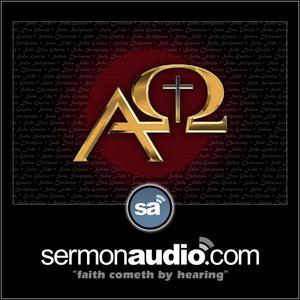 Alpha and Omega Ministries
Alpha and Omega Ministries
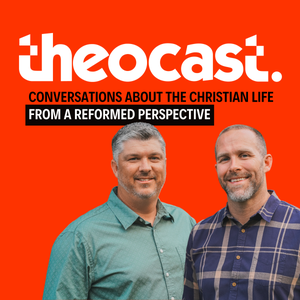 Theocast
Theocast
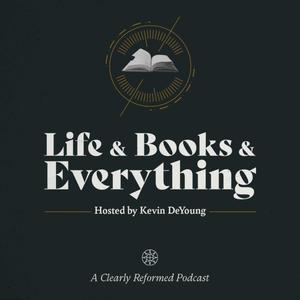 Life and Books and Everything
Life and Books and Everything
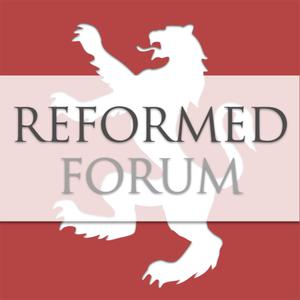 Reformed Forum
Reformed Forum
 White Horse Inn
White Horse Inn
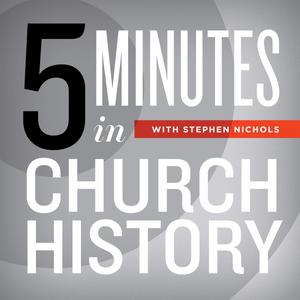 5 Minutes in Church History with Stephen Nichols
5 Minutes in Church History with Stephen Nichols